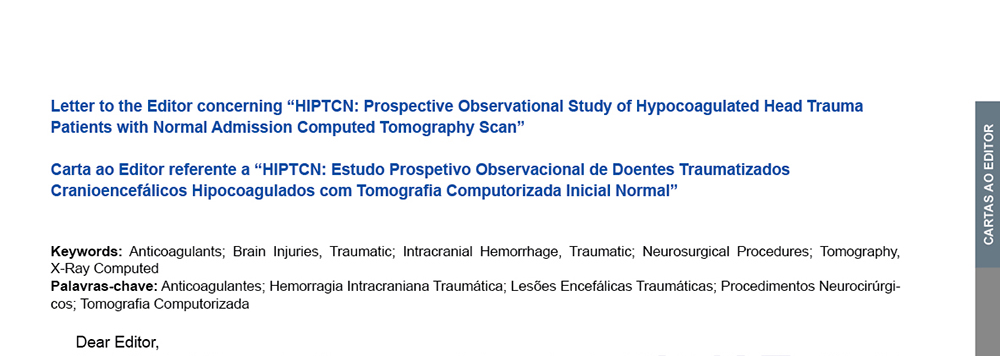REDES SOCIAIS
Revista Científica da Ordem dos Médicos

Duarte-Batista et al have analyzed the occurrences and outcomes of a series of 178 adult patients with head injury that had an initial normal head computed tomography (CT) scan, and despite that, further remained in hospital for a 24-hour surveillance period due to a hypocoagulative state (drug induced and/or caused by coagulopathy), then undergoing a post surveillance CT scan. As a rule, anticoagulation medication was not taken during the surveillance period, they state, but the cases in which either partial or total reversal was performed were not reported. With this approach, the authors found that the mortality rate of patients was zero. They diagnosed all the patients that developed delayed intracranial hemorrhage (n = 4, 2.3%), and curiously they were all asymptomatic; one had already undergone reversal of anticoagulation and the remaining were kept off the medication. None of these patients with delayed intracranial hemorrhage required surgery, and no morbidity was recorded. They also state that their results cannot support exclusion of post surveillance CT scan since it
dictated the management of anticoagulant therapy. They also recall the possibility of a falsely normal initial head CT scan that has been described in the literature in this setting due to errors in radiology reporting.
Leia aqui o texto completo da Carta ao Editor (apenas em inglês).